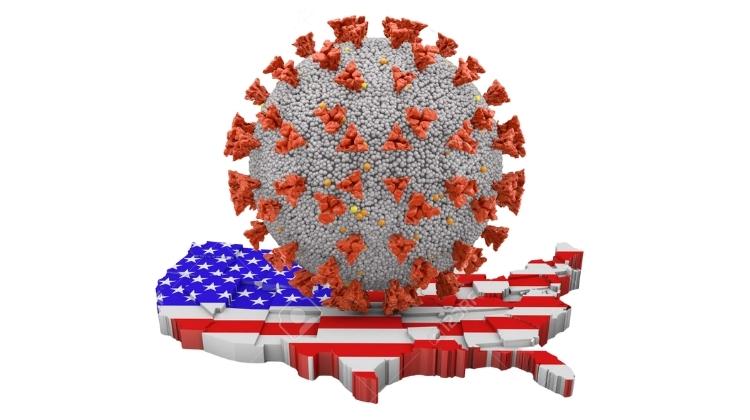T-Cells From The Common Cold Might Be A Solution For COVID

The latest breakthrough in COVID-19 research establishes a link between COVID infection rates and the presence of T-cells in the body derived from other human coronaviruses—specifically, strains of the common cold that are very similar to COVID-19 genetically.
Scientists hope that we’ll be able to gain an advantage over COVID-19 in the long term by taking a cue from nature and emulating this fascinating immune response. What is a universal COVID-19 vaccine? What’s the connection between previous exposure to the common cold and a body more resistant to the coronavirus on average?
Evidence Suggests That Previous Exposure to the Common Cold May Confer Some COVID Protection
Currently, the scientific community is celebrating one UK study that may lead us to a more promising COVID-19 vaccine. The body’s immunological “memory” may sometimes recognize SARS-CoV-2 as one of several strains of the common cold.
Plenty of evidence has been published on the protective capacity of T-cells from other human coronaviruses against SARS-CoV-2, COVID-19. Researchers at the Imperial College London have broken new ground in this domain—their seminal work is shedding light on how influential these T-cells are in the virus’s presentation.
In short: exposure to the common cold might actually be enough to prevent a person from contracting COVID-19. Those deeply involved with this research are hoping to use this new insight to lay the foundation for a “universal” coronavirus vaccine. What does this mean, exactly?
A Second-Generation Universal COVID Vaccine Might Be On Its Way
A universal coronavirus vaccine is one that remains totally effective, no matter which strain of the virus the victim has contracted. Vaccine manufacturers have devoted millions of dollars and thousands of hours to the vaccines that we currently utilize, only to be ousted by the Omicron variant’s resistance to previously-effective COVID-19 treatment.
A truly universal coronavirus vaccine isn’t just effective against SARS-CoV-2 only—with four major human coronavirus outbreaks in the last two decades alone, a broader, all-inclusive vaccine might end up being our salvation as a race.
What Are T-Cells, Exactly?
T-cells are an “acquired, antigen-specific immune response” generated when prompted by the presence of a foreign viral infection in the body.
Essentially, this means that they act as a sort of “key” that matches with the original antigenic lock, which is the part of the viral unit that binds with healthy cells.
It’s like a fingerprint; these antigenic receptors are unique to every type of virus, and this mechanism of action is how the body maintains a physical record and memory of the illness as it first appeared. Every virus brings a new sequence of DNA to the table. This unique genetic sequence is how T-cells recognize a familiar virus.
T-cells concern themselves primarily with the protection of healthy cells. Before being “activated” by a virus from the outside, they’re considered “naïve”—sort of like a Compact Disk without any songs burned into it.
Once they’ve been exposed to a virus, however, they remain in the body, albeit in numbers much more subdued than at the onset of this cascade of chemical signals. If you run into the same virus again, the 10% or so still active and alive continue their work.
Can this naturally-occurring phenomenon be harnessed in our fight against COVID-19? T-cells between COVID variants don’t appear to cross over as effectively as we would have hoped at the beginning of the pandemic. Common cold T-cells appear to be much more capable of making this leap, bafflingly enough.
How Can T-Cells Help the Body Negate COVID-19?
Just because you’ve been exposed to COVID-19 doesn’t necessarily mean you’ll end up becoming symptomatic and contagious.
The difference between those who actually come down with COVID in any serious sense and those who are able to simply brush it off has eluded the scientific community for as long as we’ve had COVID in our lives. The key difference may, in fact, be the efficacy of these unrelated T-cells against the virus.
Here’s an outline of the study at the heart of this development, just to give you some context:
- 52 COVID-negative trial participants living with a household member with a PCR-confirmed SARS-CoV-2 infection were tested for the virus every couple of days in order to create a timeline of infection rates.
- The researchers were able to analyze the blood samples of these 52 participants for existing T-cells in the body, leftover from one or more previous bouts of the common cold. They were able to observe the behavior of these T-cells and determine whether or not they were actively recognizing and targeting the protein signatures of the SARS-CoV-2 virus.
- The 26 trial participants who never got infected were shown to have much higher levels of cross-reactive T-cells in their blood.
- Interestingly enough, however, observation showed that these T-cells were not attacking the “spike” proteins of the invading SARS-CoV-2 viral units. Instead, they concerned themselves more with the internal proteins and structures of each incoming viral unit.
This last point is what most in the public health sector are currently interested in. The vaccines on the market asnow do not reckon with SARS-CoV-2 from the inside out; they take a spike-centric approach in an effort to neutralize the potency of the appendage.
The novel idea is that we should be following nature’s lead, designing COVID vaccines that eliminate the virus in this same way. The internal proteins provide a clear target for the second generation of coronavirus treatment, and many are hopeful that this new approach will succeed where others have unfortunately failed.
This saga has been unfolding since September 2020, but it appears to be one train of thought worth following.
The Omicron variant’s spike organ is a relatively new development—these internal proteins, however, appear to be much more stable in an evolutionary sense. The consistency of these proteins across all COVID variants might give us the foothold that we need in order to settle the score once and for all.
This, ultimately, is what scientists believe will lead us to a truly universal coronavirus vaccine—one that remains effective against SARS-CoV-2, no matter which variant the victim has been exposed to.
Are Coronavirus T-Cells the Answer We’ve Been Waiting For?
These early results are highly encouraging. With any luck, a universal COVID vaccine is much closer than previously anticipated.
The logic is compelling: by focusing more on what every SARS-CoV-2 variant has in common; our treatment technology will be much more likely to match the body’s natural performance when it comes to COVID neutralization and elimination on a case-by-case basis.



